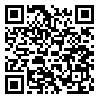Volume 4, Issue 3 (12-2018)
RSJ 2018, 4(3): 25-34 |
Back to browse issues page
Research code: 32876
Ethics code: IR.IUMS.REC 1396.32876
Download citation:
BibTeX | RIS | EndNote | Medlars | ProCite | Reference Manager | RefWorks
Send citation to:



BibTeX | RIS | EndNote | Medlars | ProCite | Reference Manager | RefWorks
Send citation to:
Solhi M, Samaee F, Sahraei F. Relationship between student self- efficacy and selfcare in Iran University of Medical Sciences. RSJ 2018; 4 (3) : 3
URL: http://rsj.iums.ac.ir/article-1-178-en.html
URL: http://rsj.iums.ac.ir/article-1-178-en.html
Abstract: (1858 Views)
Background & Objectives: Air pollution in Tehran is one of the main problems of this city. Self-care includes all activities related to maintaining health, prevention and treatment of diseases by It becomes the person. Self-efficacy is a person's confidence in the ability to perform specific behaviors in specific situations. The aim of this study was to determine the relationship between self-efficacy and self-care among students of Iran University of Medical Sciences.
Materials & Methods: In this cross-sectional study, 300 students in Iran University of Medical Sciences were selected by simple multi-stage random sampling method. Then the data through Stata software version 14 data were analyzed by using analytical tests.
Results: The mean and standard deviation of perceived self-efficacy score in the studied students were 23.1 ± 2.1 and the mean and standard deviation of the self-care score in the studied students was 31.1 ± 2.3. There was a statistically significant relationship between self-efficacy with gender (P = 0.014) and income level (P = 0.028). Only a statistically significant relationship was observed between self-care and the educational level of the studied students (P = 0.003). Also, a statistically significant relationship was observed between self-efficacy and self-care using Fisher test (P> 0.02).
Conclusion: Perceived self-efficacy about maintaining health during air pollution and self-care during air pollution is insufficient in the studied students and in designing promotional interventions to increase self-efficacy, boys and students with lower income should be emphasized and to increase self-care in these students. Also emphasize on increasing self-efficacy.
Materials & Methods: In this cross-sectional study, 300 students in Iran University of Medical Sciences were selected by simple multi-stage random sampling method. Then the data through Stata software version 14 data were analyzed by using analytical tests.
Results: The mean and standard deviation of perceived self-efficacy score in the studied students were 23.1 ± 2.1 and the mean and standard deviation of the self-care score in the studied students was 31.1 ± 2.3. There was a statistically significant relationship between self-efficacy with gender (P = 0.014) and income level (P = 0.028). Only a statistically significant relationship was observed between self-care and the educational level of the studied students (P = 0.003). Also, a statistically significant relationship was observed between self-efficacy and self-care using Fisher test (P> 0.02).
Conclusion: Perceived self-efficacy about maintaining health during air pollution and self-care during air pollution is insufficient in the studied students and in designing promotional interventions to increase self-efficacy, boys and students with lower income should be emphasized and to increase self-care in these students. Also emphasize on increasing self-efficacy.
Article number: 3
Type of Study: Research |
Subject:
General
Received: 2022/09/18 | Accepted: 2023/02/24 | Published: 2023/03/1
Received: 2022/09/18 | Accepted: 2023/02/24 | Published: 2023/03/1
Send email to the article author
| Rights and permissions | |
 |
This work is licensed under a Creative Commons Attribution-NonCommercial 4.0 International License. |






